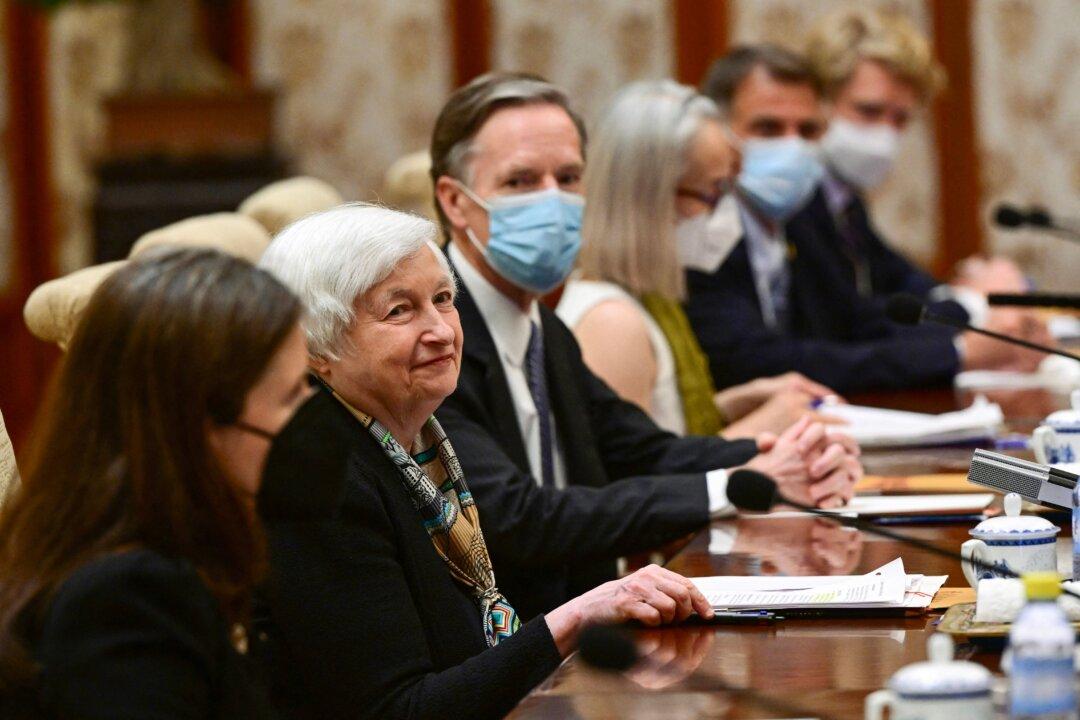U.S. Treasury Secretary Janet Yellen on Saturday called on the Chinese regime to communicate “directly” if there are concerns about specific economic practices, reiterating the importance of communication amid a “complicated global economic outlook.”
Ms. Yellen’s remarks were delivered during a conversation with China’s Vice Premier He Lifeng, a long-time ally of Chinese leader Xi Jinping, during the third day of her trip to Beijing. The visit through Sunday is part of the U.S. efforts to bring back communications amid the strained bilateral ties, though critics argued that the Treasury chief has not spoken from a position of strength while engaging with Chinese officials.





